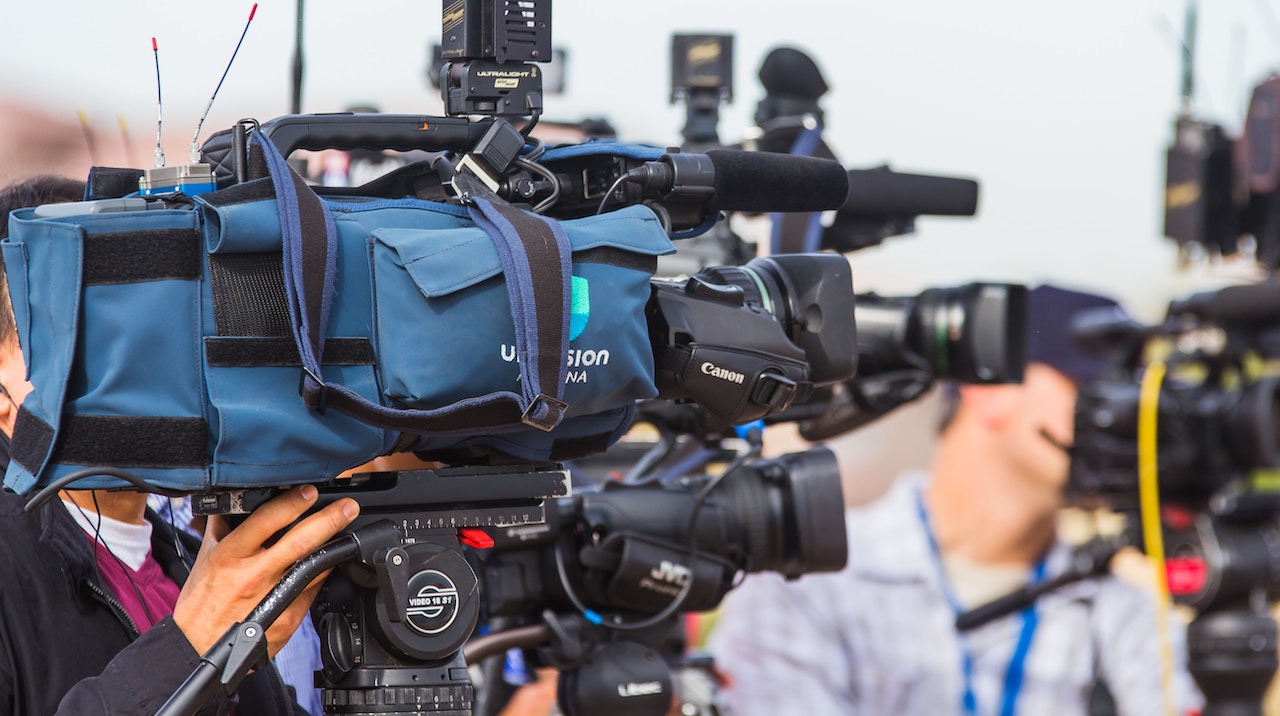Journalists Covering Anti-Brutality Protests Face Threats from Police
The Committee for the Protection of Journalists is tracking nearly 100 incidents of force being used against the press during nationwide protests.

During the ongoing protests against racial injustice and police brutality, there’s a trend emerging: Police are targeting journalist with arrests, rubber bullets, and pepper spray.
The Committee to Protect Journalists, a non-profit that aims to promote freedom of the press on a global scale, says its tracking nearly 100 incidents of force being used against the press.
“This rhetoric does have a role in amping up the anti-press sentiment.” — Robert Mahoney, Committee for the Protection of Journalists
“This is nothing like anyone has seen in the United States for more than half a century,” says Robert Mahoney, CPJ deputy executive director. “We’ve seen police deliberately attacking journalists in numerous cities.”
Click on the player above to hear how rising threats against journalists is inhibiting free speech.
He says what has happened during the past week is unprecedented in recent U.S. history.
“There have been several incidences of journalists shouting that they are press; holding up their press badges and still police are firing rubber bullets or pepper balls or other are objects at them,” Mahoney says. “We had an incident of one gentleman who was on the ground, holding up his press pass, and he was pepper sprayed in the face. These are totally unacceptable. They have a right — a constitutional right — to be there and to document what’s going on.”
“This is the country of the First Amendment. They need to be out, reporting on what is going on on the streets without being assaulted.”
The CPJ has traditionally focused on authoritarian countries around the world.
“Those countries want to close down coverage of what their security forces are doing,” Mahoney says. “And oftentimes those security forces are actually militarized. This, we don’t expect in the United States. This is the country of the First Amendment. This is the country where journalists play a vital role in the democratic structure. And they need to be out, reporting on what is going on on the streets without being assaulted.”
Mahoney says there is a history of police arresting and attacking journalists as recently as 2014 in Ferguson, Missouri, where protests erupted over the police killing of Michael Brown, another black man. Since then, he says the atmosphere has gotten worse, with President Donald Trump calling the press the “enemy of the people.”
“This rhetoric does have a role in amping up the anti-press sentiment or anti-press rhetoric that there is,” Mahoney says. “What we need from our leaders is a reaffirmation of the importance of the press and a calming of the situation. But this weekend, the president came out with yet another anti-press statement. It has to stop.”
Trusted, accurate, up-to-date
WDET is here to keep you informed on essential information, news and resources related to COVID-19.
This is a stressful, insecure time for many. So it’s more important than ever for you, our listeners and readers, who are able to donate to keep supporting WDET’s mission. Please make a gift today.

